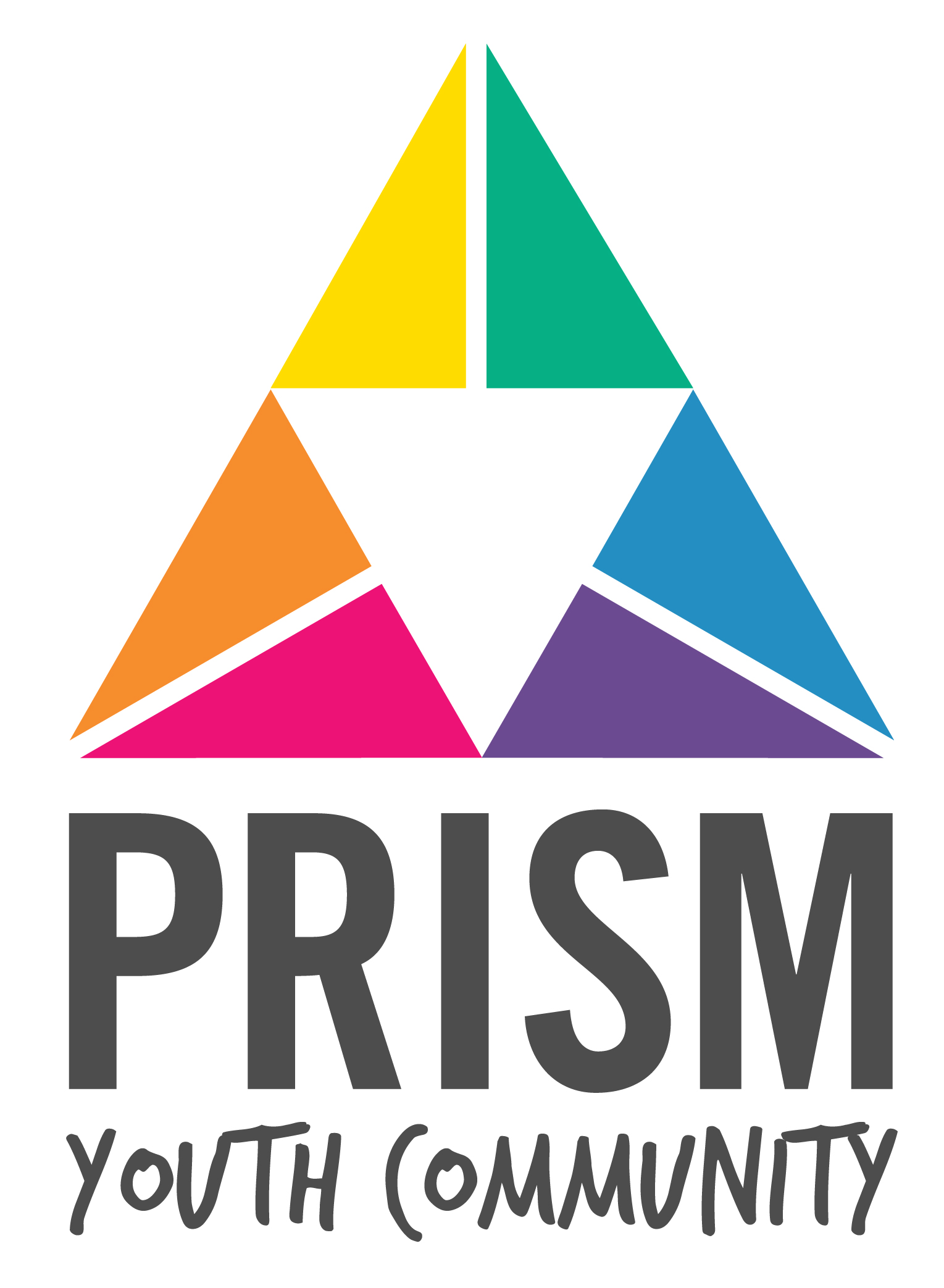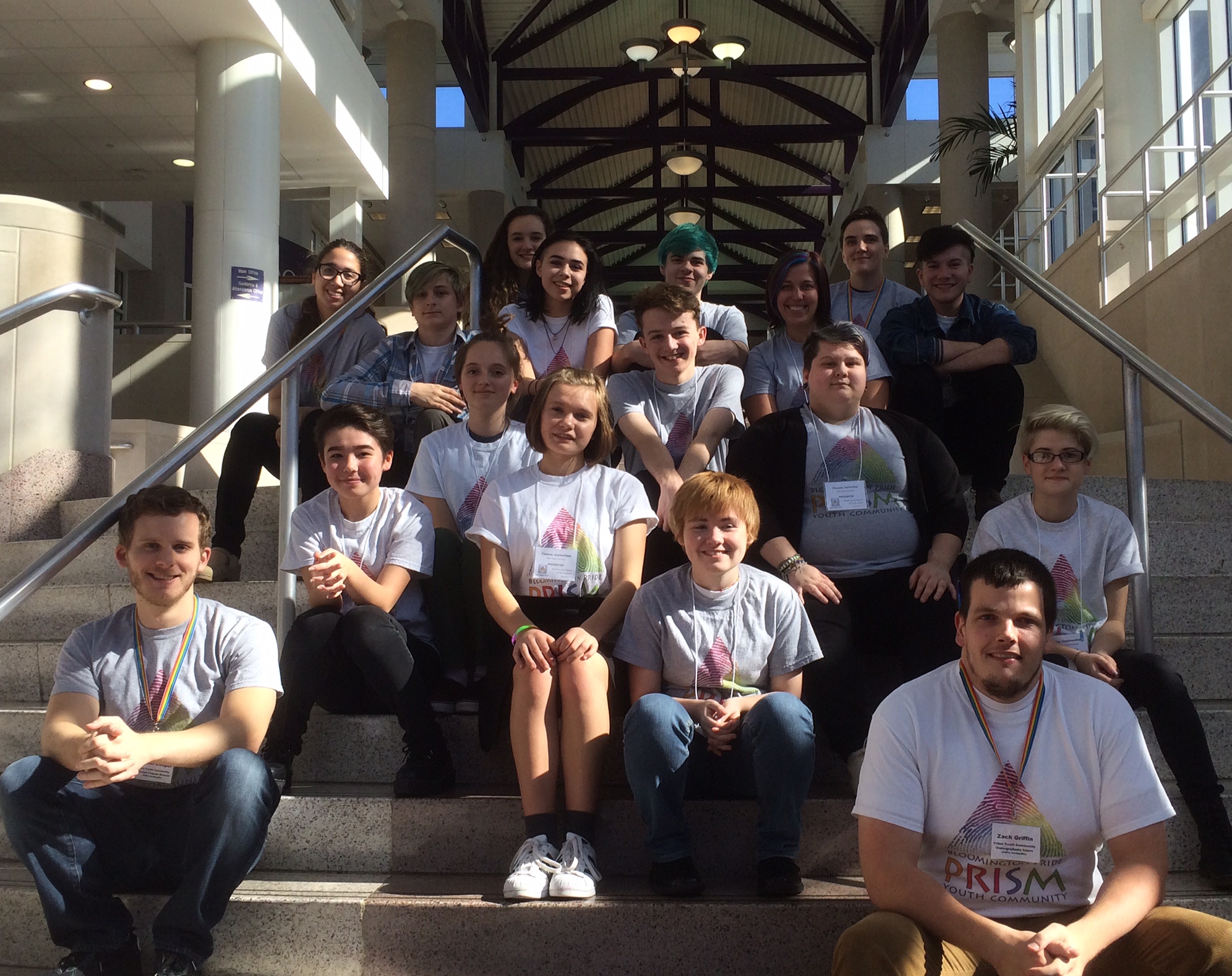The Indiana University School of Public Health-Bloomington is proud to announce the launch of a new academic-community collaboration, the IU-Prism Partnership for Health Equity. The partnership, recently formalized through a grant awarded to the Center for Sexual Health Promotion and the Bloomington PRIDE Prism Youth Community by the Indiana University School of Public Health-Bloomington, was founded based on the core belief of the critical need to create safe and supportive environments for overall health and well-being among sexual and gender minority (SGM) youth. [The term “SGM youth” includes young people who may self-identify as lesbian, gay, bisexual, transgender, and queer (LGBTQ), or as a wide range of other sexual and gender identity labels (+), as well as those who may self-identify as “heterosexual” and do not engage exclusively in heterosexual behavior.] This grant will allow the new partners to facilitate mapping the Prism environment in order to cultivate capacity in order to build potential for a wide range of health-related program development, implementation, and evaluation efforts.
Prism Youth Community is a local (Bloomington, Indiana-based) youth-led initiative that provides an inclusive space for youth (ages 12-20 years) celebrating all sexual orientations and gender expressions. Founded in February 2014, Prism is a program under Bloomington PRIDE, also a community-based program serving SGM and ally individuals throughout the south-central Indiana area. At the core of Prism is a genuine commitment to youth engagement and leadership. Youth members are elected to several leadership committees that comprise the consensus-oriented structure of decisions. Prism members currently participate in a number of educational programs, social programs, and training programs for professionals and other youth. They also volunteer in the community serving people in need. In its first two years, Prism’s wide range of outreach and internal activities synergistically facilitate diverse conversations on social and personal topics, including health and wellness, cultural competency, and meeting the needs of SGM youth throughout south-central Indiana.
Issues related to health equity are of utmost importance in the lives of sexual and gender minority youth, as affirmed in a recent report from the Institute of Medicine. Compared to their heterosexual peers, SGM youth experience a wide range of health disparities and related difficulties, as seen in disproportionate rates of psychosocial health issues, such as depression, anxiety, substance use, and suicidality, as well as health risk behavior issues, including unprotected sex, higher number of sexual partners, more frequent use of emergency contraception and pregnancy termination, and disproportionate rates of HIV and other sexually transmitted infections (STI). SGM youth also remain at high risk for violence and other forms of victimization based on their sexual and gender identities. As yet, the health implications of involvement in communities like Prism have rarely been examined for SGM youth outside the context of large urban areas on the East or West Coasts of the United States with well-established LGBTQ+ communities. The impact of social support and community connectedness among SGM youth's health in lower-resource and geographically diffuse rural areas, such as south-central Indiana, are relatively unknown.
This opportunity will enable the IU-Prism Health Equity Partnership team to develop a long-term and sustainable initiative whose members will work together to address ongoing challenges related to sexual and gender minority youth health disparities. The active engagement of Prism members as co-investigators across all activities will provide the youth themselves with access to and benefits from collaborating in community-based participatory public health research, with the hope of encouraging continuing commitment to addressing health-related inequities among LGBTQ+ individuals and communities in Indiana and beyond. The partnership is being led on the Prism side by Laura Ingram, Spencer Biery, Piper Lacy, Aubrie Blauvelt, and Rebecca Smith; the Indiana University team will be led by research coordinators Christopher Owens and Elizabeth Bartelt, along with co-principal investigators Dr. Brian Dodge and Dr. Debby Herbenick.




